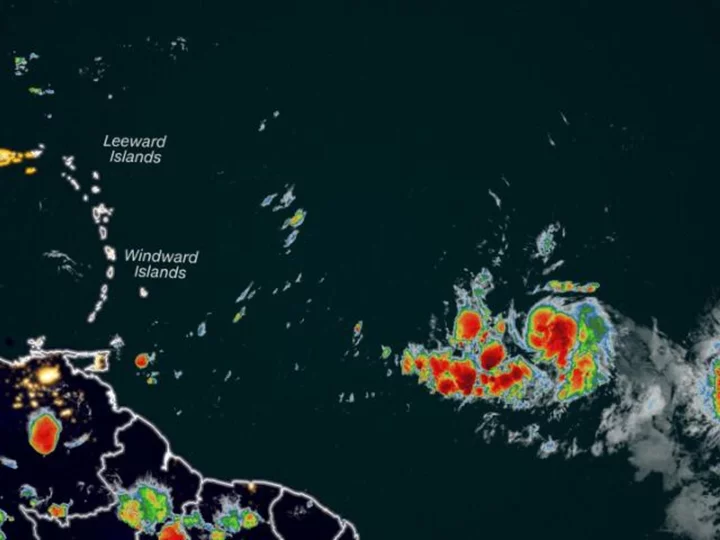
An independent inquiry opens into the alleged unlawful killings by UK special forces in Afghanistan
An independent inquiry has opened in the U.K. to examine claims that British special forces murdered dozens of Afghan men during counterinsurgency operations in Afghanistan a decade ago
2023-10-09 22:48

Game 3 awaits in the NBA Finals, with Heat loose and Nuggets facing adversity
Erik Spoelstra has preached about the value of adversity for months, not shying away from saying that it helped the Miami Heat get to these NBA Finals
2023-06-07 02:46

Did xQc break up with Fran? Kick streamer reveals truth putting an end to rumors: 'I'm radiating something bad right now'
xQc and Fran were first linked in June when affectionate pictures of the couple went viral across social media platforms
2023-07-31 13:17

Georgia probe of Trump expands to activities in other states -Washington Post
WASHINGTON A Georgia-based probe into whether former Republican President Donald Trump and others illegally sought to overturn his
2023-06-03 01:28

No. 1 Georgia, No. 8 Alabama follow different paths to SEC Championship Game
Alabama’s national championship hopes came down to fourth-and-31 with a loss and more than a few close calls along the way
2023-11-27 08:26

Build begins on Wyoming-to-California power line amid growing wind power concern
Wyoming and federal officials will formally kick off construction Tuesday of a massive transmission line project to export wind power from Wyoming to southern California
2023-06-20 20:47

Cormac McCarthy, revered American novelist, dies at 89
Celebrated author Cormac McCarthy, an unflinching chronicler of America's bleak frontiers and grim underbelly, died on Tuesday aged...
2023-06-14 04:24

Tim Ballard supporters scream 'smear campaign', compare it to Lauren Boebert being 'set up'
Tim Ballard, originally from Utah and a former CIA agent, is renowned for founding the non-profit organization Operation Underground Railroad in 2013
2023-09-19 15:51

In Hawaii, concerns over 'climate gentrification' rise after devastating Maui fires
The fires that broke out on Maui last week have exacerbated Hawaii’s housing crisis as more than more than 3,000 buildings in Lahaina were damaged or destroyed, leaving many wondering if homeowners can afford to rebuild
2023-08-18 12:28

Lufthansa Upbeat on Outlook as Travel Boom Seen Continuing
Deutsche Lufthansa AG said it’s on track to meet its financial targets this year and in 2024 as
2023-11-02 16:46

2 teens held in fatal bicyclist hit-and-run video case appear in adult court in Las Vegas
Two teenagers have made initial appearances in adult court in Las Vegas where prosecutors say they'll face murder and other charges in the video-recording crash of an allegedly stolen car into a bicyclist — killing the man
2023-09-22 08:25

Canada wildfire: Yellowknife evacuees turned away from full flights
Thousands of residents desperate to flee Yellowknife are told to return on Friday as planes fill up.
2023-08-18 10:19
You Might Like...

Kick streamer xQc cleared of sexual assault allegations amid reconciliation rumors with ex Adept

Two people struck by train in County Sligo

PUMA Made 7 Out of 10 Products from Better Materials In 2022

Chevron buys Hess for $53 billion, 2nd buyout among major producers this month as oil prices surge

European heatwave - latest updates as red alerts and record temperatures continue

Georgia grand jury handling potential indictments in Trump 2020 probe is sworn in

Tropical storm watches and warnings cover parts of the Caribbean as Bret is forecast to bring strong winds and flooding

Adin Ross: How much did star streamer contribute to Kick’s hours watched in April?
